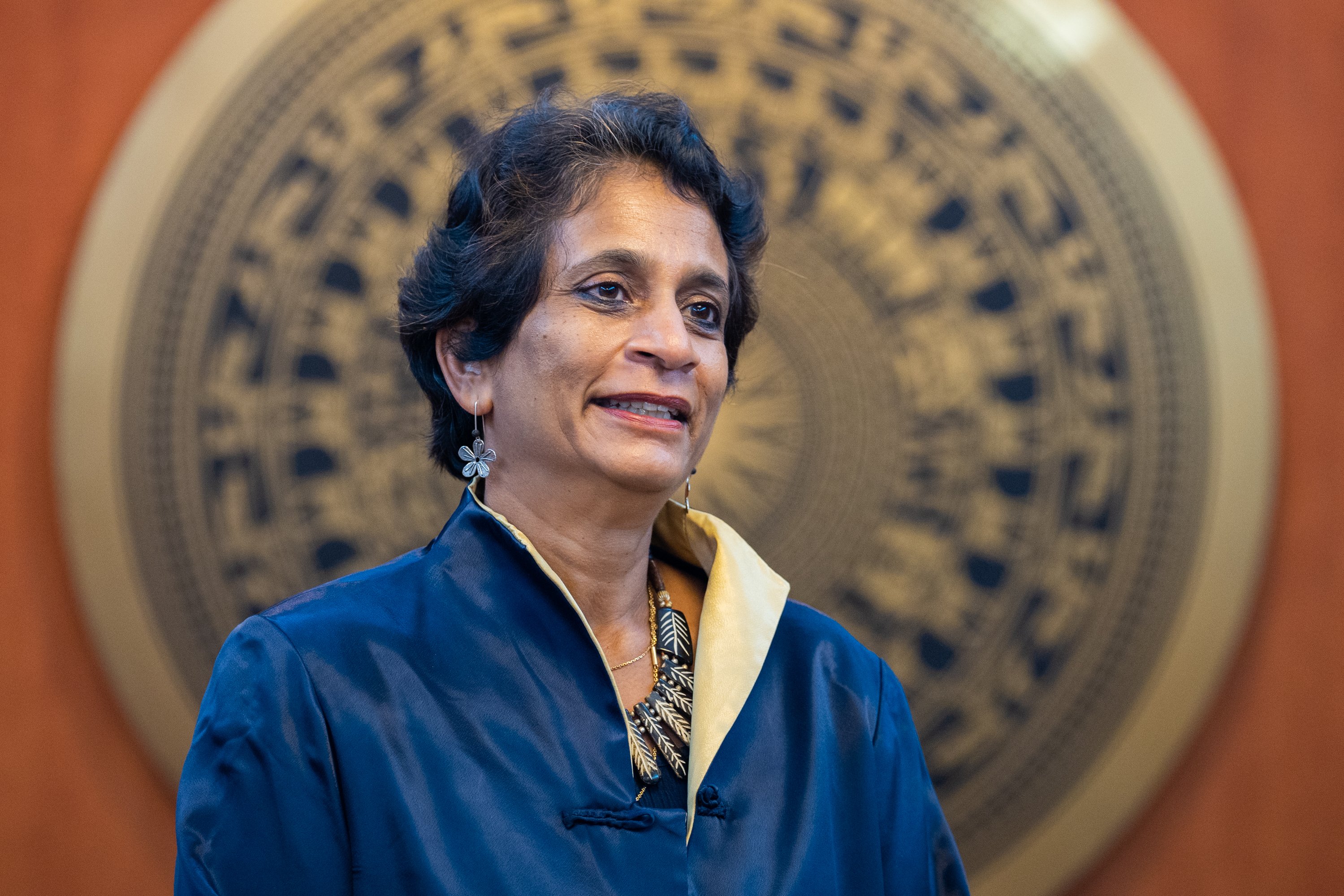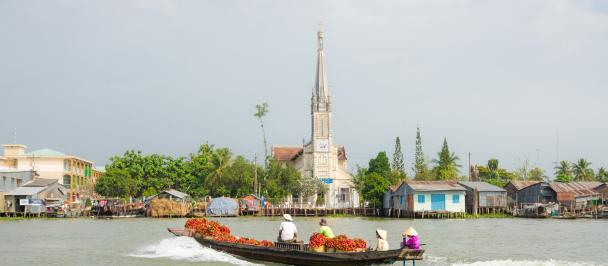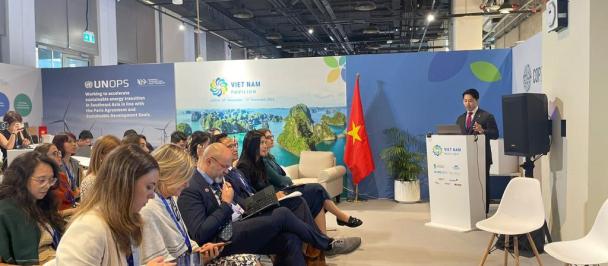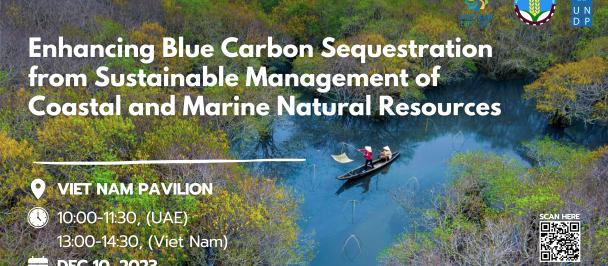Vietnam needs strong financial sector to decarbonise economy
July 29, 2022

Kanni Wignaraja, UN Assistant Secretary-General and UNDP Regional Director for Asia and the Pacific
As published by Vietnam Plus on July 29, 2022
Hanoi (VNA) – Vietnam needs to develop a strong domestic banking and financial sector that can provide a guaranteed funding base for decarbonising the oil economy, Kanni Wignaraja, UN Assistant Secretary-General and UNDP Regional Director for Asia and the Pacific, told the Vietnam News Agency (VNA) on July 29.
Vietnam can leverage green bonds to finance the development of renewables, she said, referring to one of a few things Vietnam could do to accelerate the Just Energy Transition.
Secondly, she said, Vietnam should focus on enhancing the regulatory framework since “money is not going to come in unless there are very strong, transparent, attractive regulations that govern the energy sector in the country.”
Thirdly, Wignaraja suggested Vietnam consider establishing a national energy bank, a model that has been tested by some countries. “That way, you have a domestic source of funding, or guarantee commercial banks that they can take the risk to finance energy projects.”
That energy bank could take an equity stake in these long-term projects and provide a safe space and way to invest in them, she explained.
But the most important thing of all is people have to be involved, she continued. “People's voice, their agency, their engagement has to be not just allowed, it has to be encouraged.”
People must be able to speak and share their opinions, and to engage in this new development pathway that Vietnam needs to follow, she emphasised.
The UN official expected Vietnam can show that there’s a different way to do development and that amidst the uncertain global economic outlook, Vietnam can prove itself as an attractive place for investment by doing a greener, more inclusive development.
In regard to how Vietnam can successfully pursue an inclusive and green economic rebound in the post-COVID-19 period, she recommended the country to focus on energy security and energy access for everyone.
Wignaraja also urged Vietnam to promote a "standing social protection system," able to support the most vulnerable people, and to foster the use of technology. Technology does not only create new jobs but also enables more efficient public services, private sector services, and a more transparent and accountable state, she noted.
The UN official then spoke highly of how Vietnam has changed in the past 45 years since it joined the UN, describing it as “amazing.” A country coming out of war and dependent on aid is now playing the other role of being a “stable and secured power centre,” she said.
“The world needs Vietnam and Vietnam needs Vietnam,” she affirmed, “it is an active player now on the global stage."
“It's not just Asia and the Pacific that will rely on Vietnam. I think the world is going to rely a lot more on Vietnam."
“I have been here 20 years ago,” she shared, “back now again, I put my vote that this country is going to be good for the world, and it will show the world a different way of ensuring progress not just for a few people, but for all.”
Wignaraja is on an official visit to Vietnam from July 27-31 to follow up a meeting between Prime Minister Pham Minh Chinh and UNDP Administrator Achim Steiner in New York last May, with priority given to the UNDP's support for Vietnam in the context of post-pandemic recovery and financing a sustainable climate and energy transition.
Last year, PM Chinh pledged that Vietnam would strive to achieve net zero emissions by 2050 at the 26th UN Climate Change Conference of the Parties (COP26). Vietnam is now among more than 70 countries having committed to doing so, which requires a transition from fossil fuels to renewable energy sources./.

 Locations
Locations



